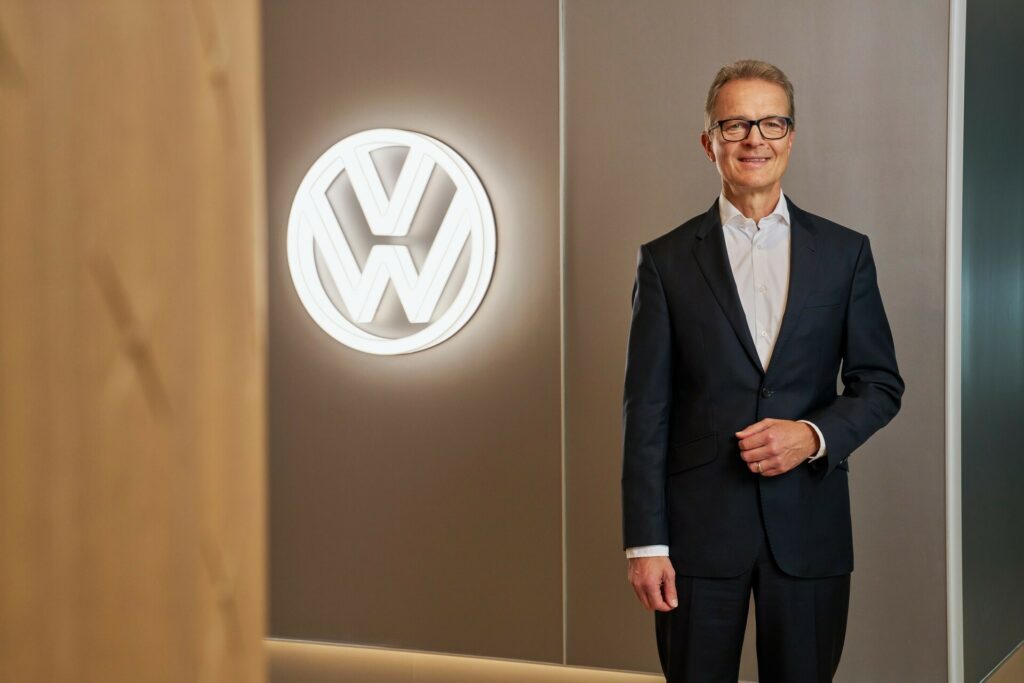MONTREAL, Canada- The Lion Electric Company (NYSE: LEV) (TSX: LEV) (“Lion” or the “Company”), a leading manufacturer of all-electric medium and heavy-duty urban vehicles, today announced its financial and operating results for the third quarter of fiscal year 2024, which ended on September 30, 2024. Lion reports its results in US dollars and in accordance with International Financial Reporting Standards (“IFRS”).
Q3 2024 Financial Highlights:
Revenue of $30.6 million, down $49.7 million, as compared to $80.3 million in Q3 2023.
Delivery of 89 vehicles, a decrease of 156 vehicles, as compared to the 245 delivered in Q3 2023.
Gross loss of $16.0 million, as compared to gross profit of $5.4 million in Q3 2023.
Net loss of $33.9 million, as compared to net loss of $19.9 million in Q3 2023.
Adjusted EBITDA1 of negative $19.5 million, as compared to negative $3.9 million in Q3 2023.
Additions to property, plant and equipment of $0.4 million, down $15.8 million, as compared to $16.2 million in Q3 2023.
Additions to intangible assets, which mainly consist of vehicle and battery development activities, amounted to $6.0 million, down $9.0 million as compared to $15.0 million in Q3 2023.
Business Updates:
More than 2,200 vehicles on the road, with over 32 million miles driven (over 52 million kilometers).
Vehicle order book2 of 1,590 all-electric medium- and heavy-duty urban vehicles as of November 6, 2024, consisting of 135 trucks and 1,455 buses, representing a combined total order value of approximately $420 million based on management’s estimates.
LionEnergy order book of 366 charging stations and related services as of November 6, 2024, representing a combined total order value of approximately $8 million.
12 experience centers in operation in the United States and Canada.
“In Q3, we further adjusted our cost structure and optimized our operations to continue to execute on our business strategy to support and promote the increasing electric school bus demand and maintain our leadership position, despite the persistent challenges that we and our industry continue to face and which put significant pressure on our liquidity” stated Marc Bedard, CEO-Founder of Lion. “We also experienced very good momentum in the latest rounds of the EPA Clean School Bus program and will keep our focus on delivering to push forward the electrification of school buses all over America” he added.
Select Explanations on Results of Operations for the Third Quarter of Fiscal Year 2024:
Revenue
For the three months ended September 30, 2024, revenue amounted to $30.6 million, a decrease of $49.7 million, compared to the corresponding period in the prior year. The decrease in revenue was due to a decrease in vehicle sales volume of 156 units, from 245 units (220 school buses and 25 trucks; 132 vehicles in Canada and 113 vehicles in the U.S.) for the three months ended September 30, 2023, to 89 units (71 school buses and 18 trucks; 45 vehicles in Canada and 44 vehicles in the U.S.) for the three months ended September 30, 2024. The decrease in vehicle sales volume was primarily attributable to the impact of the timing of EPA rounds and the continued delays and challenges associated with the granting of subsidies to the Company’s clients related to the ZETF program, as well as the impact on the Company’s production cadence due to the continued integration of its Lion MD batteries onto its vehicles and the continued ramp-up of production of the Lion5 and LionD platforms. The Company’s objective to preserve liquidity also had a negative impact on the rate of production and deliveries during the third quarter.
For the nine months ended September 30, 2024, revenue amounted to $116.4 million, a decrease of $76.7 million, compared to the nine months ended September 30, 2023. The decrease in revenue was due to a decrease in vehicle sales volume of 278 units, from 664 units (593 school buses and 71 trucks; 518 vehicles in Canada and 146 vehicles in the U.S.) for the nine months ended September 30, 2023, to 386 units (350 school buses and 36 trucks; 294 vehicles in Canada and 92 vehicles in the U.S.) for the nine months ended September 30, 2024. The decrease in vehicle sales volume was primarily attributable to the impact of the timing of EPA rounds and the continued delays and challenges associated with the granting of subsidies to the Company’s clients related to the ZETF program, as well as the impact on the Company’s production cadence due to the continued integration of its Lion MD batteries onto its vehicles and the continued ramp-up of production of the Lion5 and LionD platforms. The Company’s objective to preserve liquidity also had a negative impact on the rate of production and deliveries during the third quarter.
Cost of Sales
For the three months ended September 30, 2024, cost of sales amounted to $46.6 million, representing a decrease of $28.4 million, compared to the corresponding period in the prior year. The decrease was primarily due to lower sales volumes, partially offset by increased manufacturing costs related to the continuing ramp-up of the new products (LionD, Lion5, and the Lion battery packs) and lower production volumes (which resulted in higher fixed manufacturing costs per unit produced).
For the nine months ended September 30, 2024, cost of sales amounted to $158.7 million, representing a decrease of $30.8 million, compared to the nine months ended September 30, 2023. The decrease was primarily due to lower sales volumes, partially offset by increased manufacturing costs related to the continuing ramp-up of the new products (LionD, Lion5, and the Lion battery packs) and lower production volumes (which resulted in higher fixed manufacturing costs per unit produced).
Gross Profit (Loss)
For the three months ended September 30, 2024, gross loss increased by $21.3 million to negative $16.0 million, compared to positive $5.4 million for the three months ended September 30, 2023. The gross loss was primarily due to the impact of lower sales volumes, increased manufacturing costs related to the continuing ramp-up of the new products (LionD, Lion5, and the Lion battery packs) and lower production volume (which resulted in higher fixed manufacturing costs per unit produced).
For the nine months ended September 30, 2024, gross loss increased by $45.8 million to negative $42.3 million, compared to negative $3.5 million for the nine months ended September 30, 2023. The increase in the gross loss was primarily due to the impact of lower sales volumes, increased manufacturing costs related to the continuing ramp-up of the new products (LionD, Lion5, and the Lion battery packs) and lower production volume (which resulted in higher fixed manufacturing costs per unit produced).
Administrative Expenses
For the three months ended September 30, 2024, administrative expenses decreased by $3.3 million, from $13.0 million for the corresponding period in the prior year, to $9.7 million. Administrative expenses for the three months ended September 30, 2024 included $0.3 million of non-cash share-based compensation, compared to $1.0 million for the three months ended September 30, 2023. Excluding the impact of non-cash share-based compensation, administrative expenses decreased from $12.0 million for the three months ended September 30, 2023, to $9.4 million for three months ended September 30, 2024. The decrease was mainly due to a decrease in expenses and a lower headcount, both resulting from the workforce reduction and cost reduction initiatives implemented since November 2023, including as part of the July 2024 Action Plan.
For the nine months ended September 30, 2024, administrative expenses decreased by $6.7 million, from $38.5 million for the nine months ended September 30, 2023, to $31.8 million. Administrative expenses for the nine months ended September 30, 2024 included $1.1 million of non-cash share-based compensation, compared to $3.6 million for the nine months ended September 30, 2023. Excluding the impact of non-cash share-based compensation, administrative expenses decreased from $34.8 million for the nine months ended September 30, 2023, to $30.7 million for nine months ended September 30, 2024. The decrease was mainly due to a decrease in expenses and a lower headcount, both resulting from the workforce reduction and cost reduction initiatives implemented since November 2023, including as part of the July 2024 Action Plan.
Selling Expenses
For the three months ended September 30, 2024, selling expenses decreased by $1.4 million, from $5.2 million for the three months ended September 30, 2023, to $3.8 million. Selling expenses for the three months ended September 30, 2024 included $0.1 million of non-cash share-based compensation, compared to $0.3 million for the three months ended September 30, 2023. Excluding the impact of non-cash share-based compensation, selling expenses decreased from $4.8 million for the three months ended September 30, 2023, to $3.7 million for three months ended September 30, 2024. The decrease was primarily due to lower sales commission expenses in line with lower sales volumes and to streamlined selling related expenses, including lower headcount and marketing costs resulting from the workforce reduction and cost reduction initiatives implemented since November 2023, including as part of the July 2024 Action Plan.
For the nine months ended September 30, 2024, selling expenses decreased by $4.7 million, from $16.5 million for the nine months ended September 30, 2023, to $11.8 million. Selling expenses for the nine months ended September 30, 2024 included $0.2 million of non-cash share-based compensation, compared to $1.2 million for the nine months ended September 30, 2023. Excluding the impact of non-cash share-based compensation, selling expenses decreased from $15.3 million for the nine months ended September 30, 2023, to $11.6 million for nine months ended September 30, 2024. The decrease was primarily due to lower sales commission expenses in line with lower sales volumes and to streamlined selling related expenses, including lower headcount and marketing costs resulting from the workforce reduction and cost reduction initiatives implemented since November 2023, including as part of the July 2024 Action Plan.
Restructuring Costs
Restructuring costs of $0.8 million for the three months ended September 30, 2024 and $2.2 million for the nine months ended September 30, 2024 are comprised mainly of severance costs related to the workforce reductions and July 2024 Action Plan as described in section 8.0 of the Company’s MD&A for the three and nine months ended September 30, 2024 entitled “Operational Highlights”.
Finance Costs
For the three months ended September 30, 2024, finance costs increased by $5.3 million, from $7.7 million for the three months ended September 30, 2023, to $13.0 million for the three months ended September 30, 2024. Finance costs for the three months ended September 30, 2024 were net of $0.3 million of capitalized borrowing costs, compared to $1.6 million for the three months ended September 30, 2023. Excluding the impact of capitalized borrowing costs, finance costs increased by $4.0 million compared to the three months ended September 30, 2023. The increase was driven primarily by higher interest expense on long-term debt, due to higher average debt outstanding during the third quarter of fiscal 2024 relating to borrowings made under the Company’s senior the Company’s senior revolving credit agreement (the “Revolving Credit Agreement”), its loan agreement entered into with Investissement Québec (the “IQ Loan”), its loan agreement entered into with the Strategic Innovation Fund of the Government of Canada the (“SIF Loan”), its loan agreement entered into with Finalta Capital and Caisse de dépôt et placement du Quebec (the “Finalta-CDPQ Loan Agreement”), its other loan agreement with Investissement Québec under the ESSOR program (the “ESSOR Loan”) and its financing with respect to a credit facility to finance the Company’s accounts payable related to goods or services purchased in the normal course of its operations (the “Supplier Credit Facility”), non-cash interest (including interest paid in kind with respect to the convertible debentures issued by the Company in July 2023 (the “Convertible Debentures”)) and accretion expense, and an increase in interest costs related to lease liabilities, partially offset by lower financing costs related to the Convertible Debentures and non-convertible debentures issued by the Company in July 2023 (the “Non-Convertible Debentures”). Finance charges for the three months ended September 30, 2024 included non-cash charges of $5.6 million related to interest paid in kind with respect to the Convertible Debentures and accretion expense.
For the nine months ended September 30, 2024, finance costs increased by $24.8 million, from $11.1 million for the nine months ended September 30, 2023, to $35.9 million for the nine months ended September 30, 2024. Finance costs for the nine months ended September 30, 2024 were net of $1.1 million of capitalized borrowing costs, compared to $4.8 million for the nine months ended September 30, 2023. Excluding the impact of capitalized borrowing costs, finance costs increased by $21.1 million compared to the nine months ended September 30, 2023. The increase was driven primarily by higher interest expense on long-term debt, due to higher average debt outstanding during the nine months ended September 30, 2024 relating to borrowings made under the Revolving Credit Agreement, the IQ Loan, the SIF Loan, the Finalta-CDPQ Loan Agreement, the ESSOR Loan and the Supplier Credit Facility, non-cash interest (including interest paid in kind with respect to the Convertible Debentures) and accretion expense, and an increase in interest costs related to lease liabilities, partially offset by lower financing costs related to the Convertible Debentures and Non-Convertible Debentures issued in July 2023. Finance charges for the nine months ended September 30, 2024 included non-cash charges of $16.6 million related to interest paid in kind with respect to the Convertible Debentures and accretion expense.
Foreign Exchange Loss (Gain)
Foreign exchange loss (gain) relates primarily to the revaluation of net monetary assets denominated in foreign currencies to the functional currencies of the related Lion entities. For the three months ended September 30, 2024, the foreign exchange gain was $1.6 million, compared to a foreign exchange loss of $2.9 million for the three months ended September 30, 2023. For the nine months ended September 30, 2024, the foreign exchange loss was $1.9 million, compared to a foreign exchange gain of $0.1 million for the nine months ended September 30, 2023.The change in foreign exchange loss (gain) related primarily to the impact of changes in foreign currency rates (impact of changes in the Canadian dollar relative to the U.S. dollar).
Change in Fair Value of Conversion Options on Convertible Debt Instruments
For the three and nine months ended September 30, 2024, change in fair value of conversion options on convertible debt instruments resulted in a gain of $4.5 million and $27.8 million, respectively, compared to a gain of $3.4 million for both the three and nine months ended September 30, 2023, related to the revaluation of the conversion options on the Convertible Debentures issued in July 2023 resulting mainly from the decrease in the market price of Lion equity as compared to the previous valuations.
Change in Fair Value of Share Warrant Obligations
For the three and nine months ended September 30, 2024, the change in fair value of share warrant obligations resulted in gains of $3.1 million and $23.2 million, respectively, compared to gains of $0.2 million and $11.9 million, respectively for the three and nine months ended September 30, 2023, related to the Specific Customer Warrants, the public and private Business Combination Warrants, the 2022 Warrants, and the July 2023 Warrants, and resulting mainly from the decrease in the market price of Lion equity as compared to the previous valuations.
Net Loss
The net loss of $33.9 million for the three months ended September 30, 2024 as compared to the net loss of $19.9 million for the same period prior year was mainly due to the higher gross loss and higher finance costs, partially offset by the impact of the reduction in administrative and selling expenses as well as higher gains related to non-cash decrease in the fair value of share warrant obligations and the conversion options on convertible debt instruments.
The net loss of $74.9 million for the nine months ended September 30, 2024 as compared to the net loss of $47.2 million for the same period prior year was mainly due to the higher gross loss and higher finance costs, partially offset by the impact of the reduction in administrative and selling expenses as well as higher gains related to non-cash decrease in the fair value of share warrant obligations and the conversion options on convertible debt instruments.
Basis of Presentation
Refer to note 2 of the Company’s unaudited condensed interim consolidated financial statements for the three and nine months ended September 30, 2024 which also indicates the existence of material uncertainty that may cast significant doubt on the Company’s ability to continue as a going concern. Based on the current assessment of management, it is not certain that cash and forecasted cash flows from operations will be sufficient to meet the Company’s obligations coming due over the next twelve months, and, as a result, the Company’s ability to continue as a going concern is dependent on, among other things, its ability to raise additional funds in order to meet its capital requirements and satisfy its obligations as they become due (such as upcoming interest payment obligations under, and repayment at maturity of, certain of its debt instruments), including in connection with the expiration of the covenant relief period (as defined below) on November 15, 2024 and/or the maturity of the Finalta-CDPQ Loan Agreement on November 30, 2024. The Company expects that it will need to negotiate further amendments or concessions or waivers to agreements with the holders of its debt instruments in connection with the expiry of the covenant relief period and upcoming maturity of the Finalta-CDPQ Loan Agreement. See section 2.0 of the Company’s MD&A entitled “Basis of Presentation” for additional information.
Conference Call
A conference call and webcast will be held on November 6, 2024, at 5:30 p.m. (Eastern Time) to discuss the results. To participate in the conference call, please dial (404) 975-4839 or (833)-470-1428 (toll free) using the Access Code 946933. An investor presentation and a live webcast of the conference call will also be available at www.thelionelectric.com under the “Events and Presentations” page of the “Investors” section. An archive of the event will be available for a period of time shortly after the conference call.
Financial Report
This release should be read together with the 2024 third quarter financial report, including the unaudited condensed interim consolidated financial statements of the Company and the related notes as at September 30, 2024 and for the three and nine months ended September 30, 2024 and 2023, and the related management discussion and analysis (“MD&A”), which will be filed by the Company with applicable Canadian securities regulatory authorities and with the U.S. Securities and Exchange Commission, and which will be available on SEDAR+ as well as on our website at www.thelionelectric.com. Capitalized terms not otherwise defined herein shall have the meaning ascribed to them in the MD&A.
Non-IFRS Measure and Other Performance Metrics
This press release makes reference to Adjusted EBITDA, which is a non-IFRS financial measure, as well as other performance metrics, including the Company’s order book, which are defined below. These measures are neither required nor recognized measures under IFRS, and, as a result, do not have a standardized meaning prescribed by IFRS and are therefore unlikely to be comparable to similar measures presented by other companies. Rather, these measures are provided as additional information to complement those IFRS measures by providing further understanding of the Company’s results of operations from management’s perspective. Accordingly, they should not be considered in isolation nor as a substitute for analysis of the Company’s financial information reported under IFRS. Lion compensates for these limitations by relying primarily on Lion’s IFRS results and using Adjusted EBITDA and order book on a supplemental basis. Readers should not rely on any single financial measure to evaluate Lion’s business.
Adjusted EBITDA
“Adjusted EBITDA” is defined as net earnings (loss) before finance costs, income tax expense or benefit, and depreciation and amortization, adjusted to exclude restructuring costs, share-based compensation, change in fair value of conversion options on convertible debt instruments, change in fair value of share warrant obligations, foreign exchange (gain) loss and transaction and other non-recurring expenses. Lion uses adjusted EBITDA to facilitate a comparison of the profitability of its business on a consistent basis from period-to-period and to provide a further understanding of factors and trends affecting its business. The Company also believes this measure is useful for investors to assess the Company’s profitability, its cost structure and its ability to service debt and to meet other payment obligations. However, readers should be aware that when evaluating Adjusted EBITDA, Lion may incur future expenses similar to those excluded when calculating Adjusted EBITDA. In addition, Lion’s presentation of these measures should not be construed as an inference that Lion’s future results will be unaffected by unusual or non-recurring items. Readers should review the reconciliation of net earnings (loss), the most directly comparable IFRS financial measure, to Adjusted EBITDA presented by the Company under section 12.0 of the Company’s MD&A for the three and nine months ended September 30, 2024 entitled “Results of Operations – Reconciliation of Adjusted EBITDA.”
Order Book
This press release also makes reference to the Company’s “order book” with respect to vehicles (trucks and buses) as well as charging stations. The Company’s vehicles and charging stations order book is determined by management based on purchase orders that have been signed, orders that have been formally confirmed by clients, or products in respect of which formal joint applications for governmental programs, subsidies or incentives have been made by the applicable clients and the Company. The order book is expressed as a number of units or a total dollar value, which dollar value is determined based on the pricing of each unit included in the order book as further explained under “Pricing” in section 9.0 of the MD&A entitled “Order Book”. The vehicles included in the vehicle order book as of November 6, 2024 provided for a delivery period ranging from a few months to the end of the year ending December 31, 2028, with substantially all of such vehicles currently providing for deliveries before the end of the year ending December 31, 2025, which corresponds to the latest date by which claims are required to be made according to the current eligibility criteria of the Federal Infrastructure Canada’s Zero Emission Transit Fund “ZETF” program, unless otherwise agreed by Infrastructure Canada. In addition, substantially all deliveries are subject to the granting of subsidies and incentives with processing times that are subject to important variations. There has been in the past and the Company expects there will continue to be variances between the expected delivery periods of orders and the actual delivery times, and certain delays could be significant. Also, there has been in the past and the Company expects there will continue to be variances in the eligibility criteria of the various programs, subsidies and incentives introduced by governmental authorities, including in their interpretation and application. Such variances or delays could result in the loss of a subsidy or incentive and/or in the cancellation of certain orders, in whole or in part. In addition, the Company’s current financial position as well as the material uncertainty as to its ability to continue as a going concern is likely to increase some or all of the risks relating to the Company’s order book. See “Increased Risks relating to Order Book” under section 9.0 of the MD&A entitled “Order Book.”
The Company’s presentation of the order book should not be construed as a representation by the Company that the vehicles and charging stations included in its order book will translate into actual sales. See the section below for a full description of the methodology used by the Company in connection with the order book and certain important risks and uncertainties relating to such methodology and the presentation of the order book.
About Lion Electric:
Lion Electric is an innovative manufacturer of zero-emission vehicles. The company creates, designs and manufactures all-electric class 5 to class 8 commercial urban trucks and all-electric school buses. Lion is a North American leader in electric transportation and designs, builds and assembles many of its vehicles’ components, including chassis, battery packs, truck cabins and bus bodies.
Always actively seeking new and reliable technologies, Lion vehicles have unique features that are specifically adapted to its users and their everyday needs. Lion believes that transitioning to all-electric vehicles will lead to major improvements in our society, environment and overall quality of life. Lion shares are traded on the New York Stock Exchange and the Toronto Stock Exchange under the symbol LEV.
The post Lion Electric Announces Third Quarter 2024 Results appeared first on School Transportation News.






